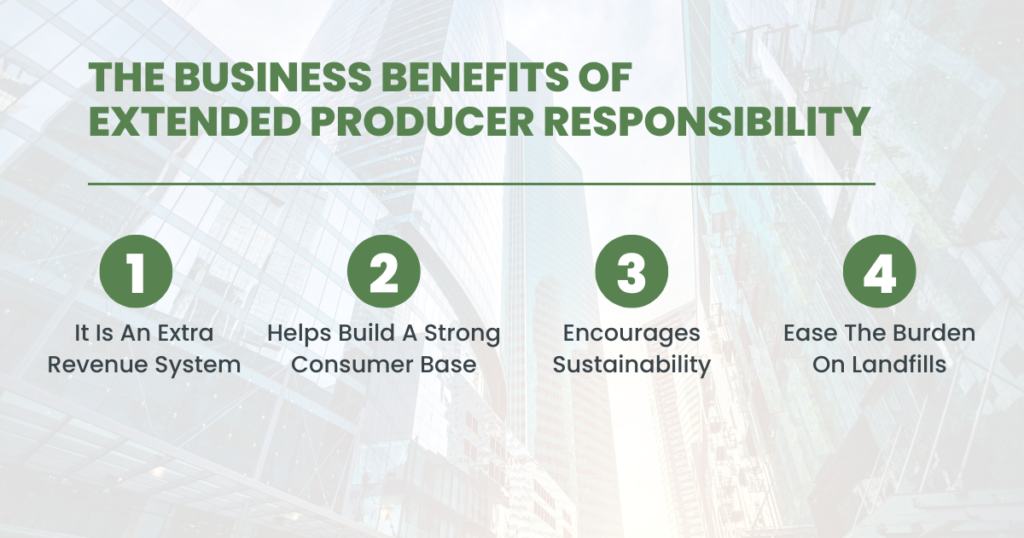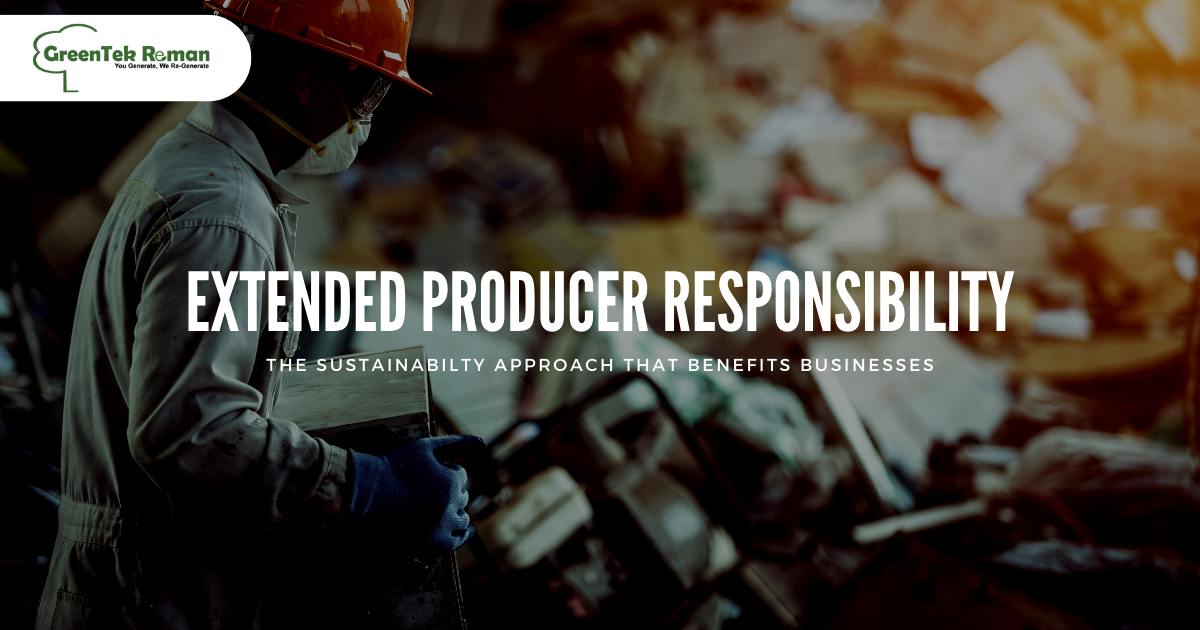The Ins & Outs of Extended Producer Responsibility
Extended Producer Responsibility, or EPR for short, gained momentum in 2021, as sustainability and environmental concerns became a significant issue during client and business conversations. An increasing number of people believe that firms ought to be answerable for their merchandise through product stewardship, an idea also called Extended Producer Responsibility.
EPR can significantly impact how businesses and e-waste management operations work through corporate governance, regulation, and consumer influence in the decades to come.
What is Extended Producer Responsibility?
EPR is a rule passed by the government of India to ensure that brands take responsibility for their post-consumer use of packaging e-waste. EPR benefits for your brand have the upper hand compared to the challenges in EPR implementation.
EPR promotes the creation of a circular economy created by channelizing plastic and e-waste and ensuring a proper e-waste management system is established.
EPR in Practice: How Does it Work?
Compliance with EPR benefits brands in multiple ways, such as sustainability, generating a revenue system, etc. It helps enable comprehensive circular collectibles that, in a way, alter the entire life of any business that chooses to do something about e-waste.
While the concept of circular economy is relatively new to many, EPR aims to add to it and ensures the foundation of a strong economy.
The climate change crisis is a reality, and many of us have started taking action. Sustainability is being practiced more than ever. Regarding this, many large companies and manufacturers have begun adopting less environmentally harmful practices in the manufacturing and packaging of their products.
While the concept of EPR has been made mandatory by the Govt. of India, a significant number of businesses have yet to start their EPR journey. It is natural to have some doubts. Have a look at these benefits of EPR for your business to assist in you making a well-informed decision.
Benefits of EPR: Why is it Good for Business?

It is an Extra Revenue System
Brands can collect e-waste post-consumer usage and send it to recycling units. Doing so enables a reusable or recyclable benefit, saving costs in manufacturing new products and acquiring raw materials.
Helps Build a Strong Consumer Base
The new generation is aware of what they consume or use. They look for sustainable brands; another reason companies work in tandem with consumers to reduce e-waste.
Encourages Sustainability
Environment-friendly, sustainable living practices and organic products are gaining popularity as a counter-measure to the adverse effects modern-day living has had on the environment. A business that can prove its sustainability approach could positively impact its reputation. Simultaneously, it also promotes eco-friendly practices.
Ease the Burden on Landfills
As the life cycle of a product comes to an end, it is given that the product will end up in the garbage. In this case, the e-waste goes into dustbins and ends up in landfills. Introducing an EPR process for your brand could change the course of e-waste and give it meaning. The e-waste does not simply go to waste but could be recycled and used again. Further, it also reduces the cost of e-waste disposal.
These were just a few significant benefits of complying with the Extended Producer Responsibility (EPR) for e-waste Management.
Conclusion
If you are new to the EPR concept, GreenTek Reman offers EPR compliance assistance. Improving design has also proven to be environmentally friendly for producers as they can change the structure and footprint of their recycled products. The voluntary EPR also has social implications as the scarcity of raw materials, and unsafe e-waste disposal has reinvigorated the reputation for protecting our environment.


